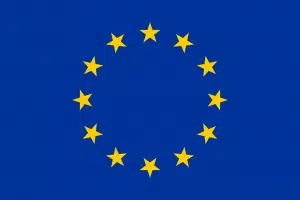
Being from Estonia, which was perviously a communist state and currently functions with the most highly developed ID card system in the world, Ansip seems to be looking to introduce a bit of Estonian culture and history to the rest of the EU. The Estonian state’s own website has this to say about their ID cards: “Much more than simply a legal picture ID, the mandatory national card serves as the digital access card for all of Estonia’s secure e-services.”
An argument for the online implementation of ID cards was written in the news paper this way: “In particular, online platforms need to accept credentials issued or recognized by national public authorities, such as electronic ID cards, citizens cards, bank cards or mobile IDs… for every consumer to have a multitude of username and password combinations is not only inconvenient but becomes a security risk.”
Another argument in favor of the online identification system is in regards to ratings and reviews. The Online Platforms and the Digital Single Market documents states, “Online ratings and reviews of goods and services are helpful and empowering to consumers, but they need to be trustworthy and free from any bias or manipulation.”
Breitbart London has reported previously on the details of how the EU will roll out the ID cards across the continent. Their plan involves using the ID information to impose taxes and minimum wage across Europe and the EU which would further bypass elected parliaments and hand more power to unelected bureaucrats.
The European Commission’s website also stated that, as of “1 July 2016, the new rules on trust services under the eIDAS Regulation will come into effect in the 28 EU Member States repealing the 15-year-old eSignature Directive and modernising the legal framework for trust services. This will be a turning point in the eIDAS journey and another big milestone towards a Digital Single Market.”
On the other side of the coin, Diane James, UK Independence Party’s spokesman for Home Affairs and European Parliament Member said, “This intrusive and seemingly authoritarian EU interference in social media and the internet is not new. In 2013, the European Parliament spent almost £2 million on press monitoring and trawling Eurosceptic debates on the internet for “trolls” during euro-elections amid fears that hostility to the EU was growing.”
Claims have been made that “institutional communicators must have the ability to monitor public conversation and sentiment on the ground and in real time, to understand ‘trending topics’ and have the capacity to react quickly, in a targeted and relevant manner, to join in and influence the conversation, for example, by providing facts and figures to deconstructing myths.”
Ms. James went on to add; “calling on us to log onto YouTube with national IDs, etc, shows a direction of travel which should worry anybody who believes in personal liberty. Voting Leave in this Brexit Referendum is our way to shout “Stop” and put an end to this madness.”






